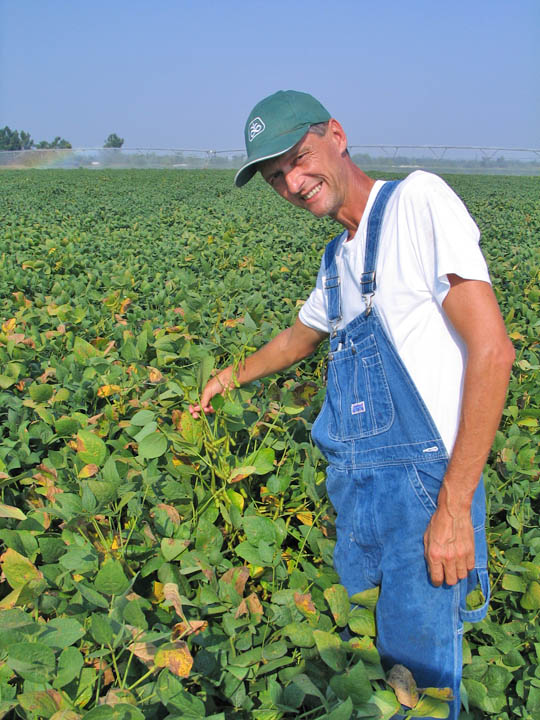
As he pushes for an ultimate goal of 200-bushel soybeans, Kip Cullers, southwest Missouri producer extraordinaire, keeps bringing in bountiful, gaudy yields, setting records and collecting trophies. He is truly a yield king.
In 2006, Cullers grew record 130-bushel soybeans on his Stark City operation. A year later, Cullers broke his own record when his soybeans yielded 154 bushels per acre (see Laws on Cullers). His record yield for 2010 is an eye-popping 160.6 bushels per acre.
“Agriculture is the backbone of Missouri’s economy, and growers like Kip Cullers are the reason why,” said Missouri Gov. Jay Nixon at a press conference celebrating Cullers’ accomplishment. “Missouri farmers feed, fuel and clothe world, and they also create jobs, support local businesses and help our communities thrive. When it comes to soybeans, Kip Cullers continues to take the science to a whole new level, and his work is blazing new trails that will keep Missouri agriculture moving forward.”
Cullers’ achievement is especially impressive when placed next to Missouri’s average soybean yield of less than 40 bushels. In 2009, Missouri harvested 5.3 million acres of soybeans worth $2.17 billion.
So, how does he do it?
According to Cullers and industry folks he works with there are a handful of reasons. Among them:
Soils
Pointing to Cullers’ pale soil “A lot of people think, ‘Hey, how are these record yields coming from down here in southwest Missouri?’ We're not very far from Branson,” said Greg Luce, a Pioneer area agronomist in Missouri, during a 2008 field day.
For more, see Record
“But the soil is more productive than you'd think. It was formed in prairie vegetation and even in rather wet conditions, it'll crumble up. It has a deep profile and drains well. That's important considering the amount of water Kip is putting on his beans.”
Cullers also utilizes poultry litter.
“The county we're in, Newton, has the highest agricultural income of any in the state,” said Luce. “That's largely because of poultry production and Kip makes use of readily available poultry litter. His fertility levels have been built up to a good base level.”
Irrigation
Cullers waters his crops regularly — low water volume, but frequent irrigations.
Crop protection
Cullers “protects the plant in several ways,” said Luce. “He adds optimized seed treatments to increase nodulation and also uses insecticide and fungicide seed treatments.”
Corn yields are also sky-high in Cullers’ fields. For more on his cornfields, see plant populations, fungicides, and varieties.
About the Author(s)
You May Also Like




